Prospector’s Corner
Salt is present in our everyday lives. It is produced by boiling brine, evaporating seawater or mining rock salt (halite) underground. A lack of salt causes chemical imbalances in the human body, disrupting the functioning of our muscles, digestive system, nervous system and heart. Livestock feed must also include salt. In other words, all animals and most living things on this planet cannot survive without salt. The oldest evidence of salt mining dates back 9,000 years in China, and the oldest European site dates back 8,000 years. Salt production made it possible to preserve food and has been linked to the rise of agriculture and livestock farming. The use of salt has been cited among the Hebrews and Greeks since ancient times. In ancient Rome, salt was used to curry favour with the gods. Salt was also a currency in many other parts of the world, such as Tibet, Mongolia and Ethiopia. The word salary, from the Latin salarium, refers to the money Roman soldiers were allotted to buy salt (De Wever and Rouchy, 2016).
-
Exploration minière
-
 La saumure naturelle au Québec : une ressource au potentiel insoupçonné
La saumure naturelle au Québec : une ressource au potentiel insoupçonné
-
 Les 20 ans du Consortium de recherche en exploration minérale : portrait d’un succès en recherche et innovation au Québec
Les 20 ans du Consortium de recherche en exploration minérale : portrait d’un succès en recherche et innovation au Québec
-
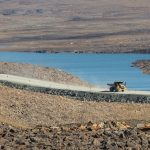 Travaux géologiques récents et potentiel minéral de la Province de Churchill
Travaux géologiques récents et potentiel minéral de la Province de Churchill
-
 20 years of SIDEX: At the heart of the mining industry
20 years of SIDEX: At the heart of the mining industry
-
 Cobalt
Cobalt
-
 Histoire géologique de la formation de l’archipel des îles de la Madeleine et de ses dépôts de sel
Histoire géologique de la formation de l’archipel des îles de la Madeleine et de ses dépôts de sel
-
 Exploration du lithium à la Baie-James : traitement statistique des données de sédiments de lacs par régression spatiale
Exploration du lithium à la Baie-James : traitement statistique des données de sédiments de lacs par régression spatiale
-
 Magdalen Islands: Geological history of the archipelago and its salt deposits
Magdalen Islands: Geological history of the archipelago and its salt deposits
-
 Mines et projets miniers au Québec
Mines et projets miniers au Québec
-
 Près de 25 ans de recherche appliquée et de géoscience publique en soutien à l’industrie minérale
Près de 25 ans de recherche appliquée et de géoscience publique en soutien à l’industrie minérale
-
 Géologie des métaux usuels critiques et stratégiques : le cas du cuivre, du zinc et du nickel
Géologie des métaux usuels critiques et stratégiques : le cas du cuivre, du zinc et du nickel
-
 Acquisition et valorisation de données géométallurgiques à un stade précoce d’exploration
Acquisition et valorisation de données géométallurgiques à un stade précoce d’exploration
-
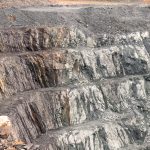 Les gisements d’or du Nunavut
Les gisements d’or du Nunavut
-
 History and Geology of the Labrador Trough
History and Geology of the Labrador Trough
-
 Mont-Wright: un gisement unique au monde
Mont-Wright: un gisement unique au monde
-
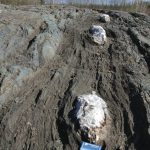 Typologie des intrusions felsiques à intermédiaires pour l’exploration à l’Archéen
Typologie des intrusions felsiques à intermédiaires pour l’exploration à l’Archéen
-
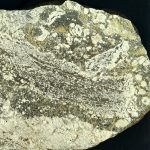 Definition, geometry and parameterization of alteration envelopes around VMS deposits in the Matagami camp
Definition, geometry and parameterization of alteration envelopes around VMS deposits in the Matagami camp
-
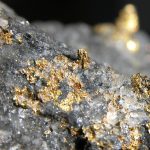 L’or dans la ceinture de roches vertes de l’Abitibi, Québec et Ontario, Canada
L’or dans la ceinture de roches vertes de l’Abitibi, Québec et Ontario, Canada
-
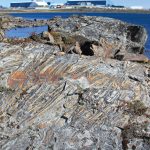 Banded Iron Formation-Associated Gold Deposit
Banded Iron Formation-Associated Gold Deposit
-
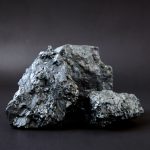 Beyond Iron: The Potential for Base Metals in the Labrador Trough
Beyond Iron: The Potential for Base Metals in the Labrador Trough
-
 Le fer
Le fer
-
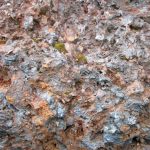 Iron Ore in Quebec
Iron Ore in Quebec
-
 Le sel
Le sel
-
 L’accessibilité des connaissances géoscientifiques au gouvernement du Québec
L’accessibilité des connaissances géoscientifiques au gouvernement du Québec
-
 Gold Deposits of Nunavut
Gold Deposits of Nunavut
-
 Almost 25 years of applied research and public geoscience in support of the mineral industry
Almost 25 years of applied research and public geoscience in support of the mineral industry
-
 Historical and Geological Overview of an Exceptional Camp
Historical and Geological Overview of an Exceptional Camp
-
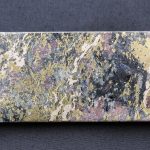 Les métaux de base : Exploration et exploitation du cuivre, du nickel et du zinc au Québec
Les métaux de base : Exploration et exploitation du cuivre, du nickel et du zinc au Québec
-
 Mines and Mining Projects in Quebec
Mines and Mining Projects in Quebec
-
 Le cobalt
Le cobalt
-
 Aperçu historique et géologique d’un camp exceptionnel
Aperçu historique et géologique d’un camp exceptionnel
-
 Les bassins sédimentaires du sud du Québec et les cibles d’exploration pétrolière et gazière
Les bassins sédimentaires du sud du Québec et les cibles d’exploration pétrolière et gazière
-
 Le scandium
Le scandium
-
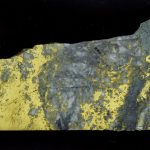 Gold in the Abitibi Greenstone Belt, Canada : a Geological and Historical Overview
Gold in the Abitibi Greenstone Belt, Canada : a Geological and Historical Overview
-
 Mines et projets miniers au Québec
Mines et projets miniers au Québec
-
 Gold in Quebec: Moving North of the Abitibi
Gold in Quebec: Moving North of the Abitibi
-
 Access to the Quebec’s Geoscience Information
Access to the Quebec’s Geoscience Information
-
 Mines et projets miniers au Québec
Mines et projets miniers au Québec
-
 Le lithium
Le lithium
-
 L’or du Québec : de l’Abitibi aux territoires de Eeyou Istchee Baie-James et du Nunavik
L’or du Québec : de l’Abitibi aux territoires de Eeyou Istchee Baie-James et du Nunavik
-
 Définition, géométrie et paramétrage des enveloppes d’altération au pourtour des gîtes de SMV du camp de Matagami
Définition, géométrie et paramétrage des enveloppes d’altération au pourtour des gîtes de SMV du camp de Matagami
-
 Geology of critical and strategic base metals: Focus on copper, zinc and nickel
Geology of critical and strategic base metals: Focus on copper, zinc and nickel
-
 Mines and mining projects in Quebec
Mines and mining projects in Quebec
-
 L’or associé aux formations de fer rubanées ; gisements complexes mais à fort potentiel
L’or associé aux formations de fer rubanées ; gisements complexes mais à fort potentiel
-
 Mines and Mining Projects in Quebec
Mines and Mining Projects in Quebec
-
 Acquisition and Management of Geoscientific Knowledge by the Quebec Government
Acquisition and Management of Geoscientific Knowledge by the Quebec Government
-
 Industrie du fer : un avenir qui est loin d’être morose
Industrie du fer : un avenir qui est loin d’être morose
-
 Les minerais de fer au Québec
Les minerais de fer au Québec
-
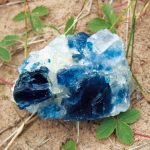 Les minéraux industriels au Québec
Les minéraux industriels au Québec
-
 Le vanadium, un métal critique à l’économie américaine présent au Québec
Le vanadium, un métal critique à l’économie américaine présent au Québec
-
 L’or dans la ceinture de roches vertes de l’Abitibi, Québec et Ontario, Canada: un aperçu géologique et historique
L’or dans la ceinture de roches vertes de l’Abitibi, Québec et Ontario, Canada: un aperçu géologique et historique
-
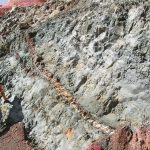 Les minéralisations aurifères d’Afrique de l’Ouest : différences et similitudes avec l’Abitibi.
Les minéralisations aurifères d’Afrique de l’Ouest : différences et similitudes avec l’Abitibi.
-
 La télécartographie prédictive, approche incontournable pour la mise à jour de la connaissance géologique au Burkina Faso
La télécartographie prédictive, approche incontournable pour la mise à jour de la connaissance géologique au Burkina Faso
-
 Mines et projets miniers au Québec
Mines et projets miniers au Québec
-
 L’acquisition et la gestion des connaissances géoscientifiques au gouvernement du Québec
L’acquisition et la gestion des connaissances géoscientifiques au gouvernement du Québec
-
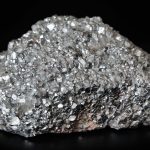 Au-delà du fer : potentiel de la Fosse du Labrador pour les métaux de base
Au-delà du fer : potentiel de la Fosse du Labrador pour les métaux de base
-
 Potentiel en métaux précieux et métaux de base dans la Fosse du Labrador
Potentiel en métaux précieux et métaux de base dans la Fosse du Labrador
-
 Histoire et géologie de la Fosse du Labrador
Histoire et géologie de la Fosse du Labrador
-
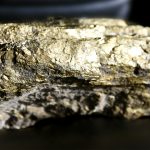 Un potentiel minéral sous-exploré : la région minière de Chapais-Chibougamau
Un potentiel minéral sous-exploré : la région minière de Chapais-Chibougamau
-
 Les métaux de base : exploration et exploitation du cuivre, du nickel et du zinc au Québec
Les métaux de base : exploration et exploitation du cuivre, du nickel et du zinc au Québec
-
 Le Québec, un territoire d’intérêt à l’ère des communications et des énergies vertes
Le Québec, un territoire d’intérêt à l’ère des communications et des énergies vertes
-
 Des données analytiques aux modèles de blocs : la boîte noire de l’interpolation
Des données analytiques aux modèles de blocs : la boîte noire de l’interpolation
-
 Projets en milieux éloignés : exploration et gestion des risques de contamination
Projets en milieux éloignés : exploration et gestion des risques de contamination
-
 Exploration et environnement
Exploration et environnement
-
 L’évolution moderne de l’estimation des ressources minérales
L’évolution moderne de l’estimation des ressources minérales
-
 Apatite : des projets d’un grand intérêt au Québec
Apatite : des projets d’un grand intérêt au Québec
-
 Apatite : des projets d’un grand intérêt au Québec
Apatite : des projets d’un grand intérêt au Québec
-
 Exploration de l’apathie au Québec
Exploration de l’apathie au Québec
-
 Entrevue avec les géologues Jean-Marc Séguin et Youcef Larbi
Entrevue avec les géologues Jean-Marc Séguin et Youcef Larbi
-
 Mine Raglan : 20 ans d’opération minière au Nunavik
Mine Raglan : 20 ans d’opération minière au Nunavik
-
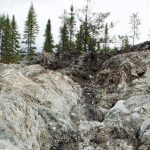 Exploration et exploitation nickélifère au Québec
Exploration et exploitation nickélifère au Québec
-
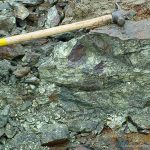 Exploration et exploitation cuprifères au Québec
Exploration et exploitation cuprifères au Québec
-
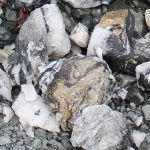 Outils technologiques en soutien à l’exploration
Outils technologiques en soutien à l’exploration
-
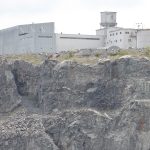 Exploration et exploitation aurifères au Québec
Exploration et exploitation aurifères au Québec
-
 La géophysique, un support à l’exploration aurifère
La géophysique, un support à l’exploration aurifère
-
 Jacques Cartier et les diamants du Canada
Jacques Cartier et les diamants du Canada
-
 Introduction à l’exploration minière : le diamant
Introduction à l’exploration minière : le diamant
-
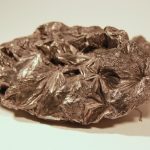 Introduction à l’exploration minière : le graphite
Introduction à l’exploration minière : le graphite
-
 Minéraux d’énergie : le Québec, un territoire des plus prometteurs
Minéraux d’énergie : le Québec, un territoire des plus prometteurs
-
 Introduction à l’exploration minière : le fer
Introduction à l’exploration minière : le fer
-
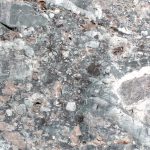 Thetford Mines : une odyssée géologique exceptionnelle
Thetford Mines : une odyssée géologique exceptionnelle
-
 Le coin du prospecteur : introduction à l’exploration minière
Le coin du prospecteur : introduction à l’exploration minière
-
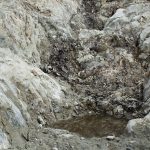 Projet nickélifère Dumont
Projet nickélifère Dumont
-
 Îles-de-la-Madeleine
Îles-de-la-Madeleine
-
 Le coin du prospecteur : introduction à l’exploration minière
Le coin du prospecteur : introduction à l’exploration minière
-
 Un secteur aurifère de grande valeur pour la province
Un secteur aurifère de grande valeur pour la province
-
 Le coin du prospecteur
Le coin du prospecteur
-
 Le projet de mine Arnaud : un projet de mine d’apatite à Sept-îles
Le projet de mine Arnaud : un projet de mine d’apatite à Sept-îles
-
 Le projet Lac à Paul : un projet de mine d’apatite au nord du Saguenay
Le projet Lac à Paul : un projet de mine d’apatite au nord du Saguenay
-
 L’exploitation de l’apatite au Québec, un potentiel bien réel
L’exploitation de l’apatite au Québec, un potentiel bien réel
-
 Le projet renard
Le projet renard
-
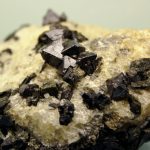 L’exploration du niobium
L’exploration du niobium
-
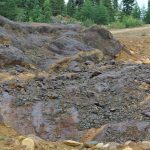 Focus graphite : diversification minérale dans la région de Fermont!
Focus graphite : diversification minérale dans la région de Fermont!
-
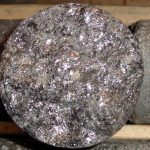 Mason graphite : vent d’optimisme sur la Côte-Nord
Mason graphite : vent d’optimisme sur la Côte-Nord
-
 L’exploration du graphite au Québec
L’exploration du graphite au Québec
-
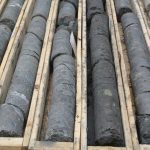 L’ère du graphite : historique de la prospection à la production
L’ère du graphite : historique de la prospection à la production
-
 Val-d’Or, un camp minier bien vivant et pas à bout de ressources (2 de 2)
Val-d’Or, un camp minier bien vivant et pas à bout de ressources (2 de 2)
-
 Val-d’Or, un camp minier bien vivant et pas à bout de ressources (1 de 2)
Val-d’Or, un camp minier bien vivant et pas à bout de ressources (1 de 2)
-
